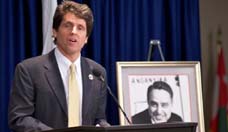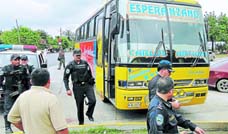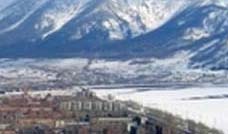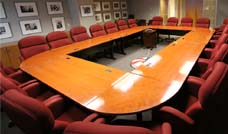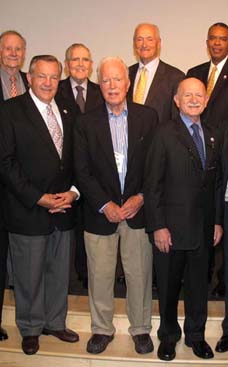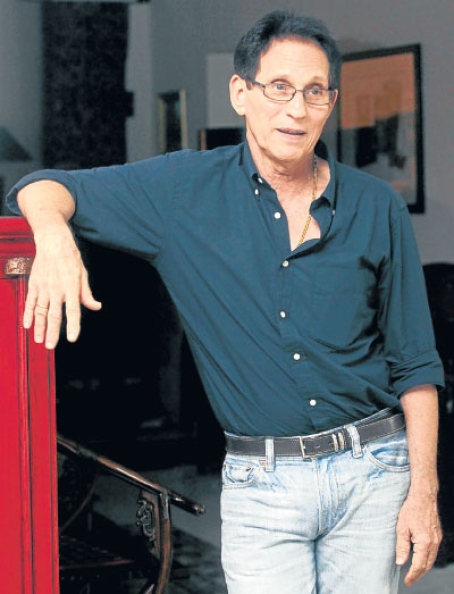
In 1969, Stupka's contract with Peace Corps ended as under the programme volunteers were required to only spend two years abroad. However, the Malaysian government asked him if he could stay for one more year since it could not find a replacement. Stupka decided to accept the offer. He felt that he was making a difference. He - and other Peace Corps volunteers - were starting something new and were excited to see the progress. "To be truthful, I could not wait to go home the first year I was here. But then slowly I made more friends, I was accepted into the community. I began to to understand the whole fabric of Malaysia more. "Of course at that time, it was also a personal ego trip. I was proud that somebody noticed what I was doing. I had responsibilities here that I would not have had in the US unless I went through many chains of command. When his contract ended in 1971, he was given an option of having a ticket to fly home or money. He decided to take the cash and look for the cheapest return ticket he could find. "I was thinking of coming back to Malaysia. Not as a Peace Corps volunteer but doing something else. At that time, there was no time limit on the ticket, we could use it anytime we wanted to. So I kept my options open." When he went back to the US in 1971, Stupka said he felt lost. He did not have a job and felt that he did not have anything in common with his friends and family. He had a cultural shock and began to realise that everything around him did not change while he had changed a lot. "The food was boring. My relatives and friends were so caught up with their own problems. Only my grandparents who raised me were interested to know what I did in Malaysia. Stupka has seen the best and worst of Malaysia through the years. He was here during the May 13, 1969 racial riots and had witnessed "horrible" things which he refused to talk about. He was here during the financial crisis and says Tun Dr Mahathir Mohamad handled it well. Every race in Malaysia strives to strengthen their relationship with each other. "I was here when I was in my 20s. I grew up with the nation. I saw how the people and government handled crisis after crisis and overcame them. I have seen so many positive developments. I have also seen the developments in Malaysia due to Peace Corps activities. I have never yet met anyone who say bad things about the Peace Corps." Now, he plans to retire as a teacher when he reaches 75. Maybe with more time on his hands, he will be able to travel again. While he goes back to Ohio every two years to visit his mother, he wants to experience autumn and spring again. "This is my home now. I told my mother that I will die here."
Peace Corps volunteer John Stupka came to Malaysia four years after the nation was formed and, 46 years later, still calls the country his home, writes Kasmiah Mustapha
Finding peace and a home
By kasmiah@nstp.com.my
A young Peace Corps volunteer came to Malaysia four years after the nation was formed and, 46 years later, still calls the country his home, writes Kasmiah Mustapha
JOHN Stupka came to Malaysia with only one thought in his mind - volunteer his services under the Peace Corps programme. Once the two-year contract is over, he would go back to his hometown in Ohio, the United States. However, the plan was derailed as 45 years after he stepped foot in this country, he is still here.
Malaysia, to him, is home. He has lived here for so long that he says he wants to spend the rest of his life here.
When he joined the Peace Corps in 1966, Stupka, 71, thought it would be an adventure since he loves to travel. At that time, he was teaching art at a private high school.
And, he admitted that joining the Peace Corps was another way to avoid being drafted into the army. At that time, the US was involved in the Vietnam War and many young men were either being drafted or volunteered to join the armed forces. However, if a person was accepted into the Peace Corps, he would be deferred from being drafted.
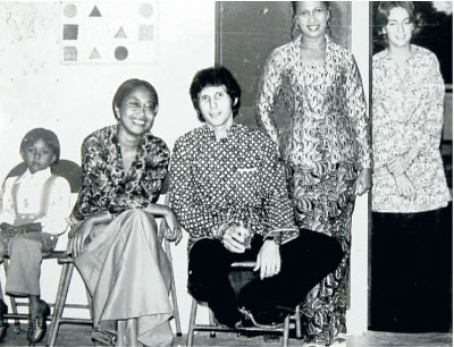
"Initially, I thought I would never be accepted into the Peace Corps. I thought the programme didn't require someone with an art degree from University of Ohio. I thought it accepted business students from Harvard or Yale. But I told myself, why not?"
Months later, he got a call to go for a medical examination at an army base. Once he passed that, he received a letter asking him to report for training at Caltech University in California.
"At the training centre, I was told that I am going to Malaysia if I am accepted into the programme. At that time, I did not know anything about Malaysia. Nobody I knew even knew where it was. I was given a list of books and references and went to library to get them.
UNKNOWN TERRITORY
"From reading, I found out a little bit about the country. I was a bit concerned when I found that Malaysia is close to Vietnam. I knew of Vietnam, but had no idea about of Malaysia, Indonesia or Thailand."
To help volunteers understand more about the country, the Malaysian government sent volunteers to help with the training. Their roles included teaching volunteers about language and culture. Stupka and 17 volunteers trained for three months, mainly in industrial art.
"It was strenuous and we were told that even if we completed training, we may not be accepted. We had to go through many exercises as well as talk to a psychologist. The worst part was having your peers judge whether you are suitable for the programme. But I made it and made my way to Malaysia."
At that time, Malaysia wanted to set up vocational programmes in secondary schools and industrial art teachers were in demand. With aid from the Canadian Colombo Plan and teachers from the US, the programme in Malaysia was kick-started.
There were 245 TESL (Teaching English as Second Language) teachers in Stupka's batch. They were volunteers to teach English in elementary schools, especially in rural areas.
With his background in art and construction, Stupka was asked to teach industrial art at the new Maktab Perguruan Teknik in Cheras, when he arrived in Kuala Lumpur in November, 1967.
"I was nervous and felt that it was a bit overwhelming. I had just graduated and I was supposed to be a student, not a teacher. However, it was also an exciting opportunity."
STAYING ON
In 1969, Stupka's contract with Peace Corps ended as under the programme volunteers were required to only spend two years abroad. However, the Malaysian government asked him if he could stay for one more year since it could not find a replacement.
Stupka decided to accept the offer. He felt that he was making a difference. He - and other Peace Corps volunteers - were starting something new and were excited to see the progress. "To be truthful, I could not wait to go home the first year I was here. But then slowly I made more friends, I was accepted into the community. I began to to understand the whole fabric of Malaysia more.
"Of course at that time, it was also a personal ego trip. I was proud that somebody noticed what I was doing. I had responsibilities here that I would not have had in the US unless I went through many chains of command.
When his contract ended in 1971, he was given an option of having a ticket to fly home or money. He decided to take the cash and look for the cheapest return ticket he could find.
"I was thinking of coming back to Malaysia. Not as a Peace Corps volunteer but doing something else. At that time, there was no time limit on the ticket, we could use it anytime we wanted to. So I kept my options open."
When he went back to the US in 1971, Stupka said he felt lost. He did not have a job and felt that he did not have anything in common with his friends and family. He had a cultural shock and began to realise that everything around him did not change while he had changed a lot.
HOME, NO LONGER
"The food was boring. My relatives and friends were so caught up with their own problems. Only my grandparents who raised me were interested to know what I did in Malaysia.
"Also the situation in the US at that time was not good. People were protesting the Vietnam War and it was stressful. Everyone was only concerned about the war. I was feeling more depressed."
Stupka's dreams of going back to Malaysia came true when he received an offer to become Peace Corps coordinator in the country. Under the new training module volunteers trained for three months in the respective countries where they were sent to.
Stupka was regarded as the right person to come up with training module in Malaysia. He jumped at the chance of doing something that he liked in a place that he felt was home. His job as the coordinator lasted four years.
In 1978, when his contract ended, he found out about an opening in International School Kuala Lumpur. Without hesitation, he decided to apply for it. With a Master's in Arts, he was offered a position as an arts teacher.
GROWING UP WITH THE NATION
Stupka has seen the best and worst of Malaysia through the years. He was here during the May 13, 1969 racial riots and had witnessed "horrible" things which he refused to talk about. He was here during the financial crisis and says Tun Dr Mahathir Mohamad handled it well. Every race in Malaysia strives to strengthen their relationship with each other.
"I was here when I was in my 20s. I grew up with the nation. I saw how the people and government handled crisis after crisis and overcame them. I have seen so many positive developments. I have also seen the developments in Malaysia due to Peace Corps activities. I have never yet met anyone who say bad things about the Peace Corps."
Now, he plans to retire as a teacher when he reaches 75. Maybe with more time on his hands, he will be able to travel again. While he goes back to Ohio every two years to visit his mother, he wants to experience autumn and spring again.
"This is my home now. I told my mother that I will die here."








